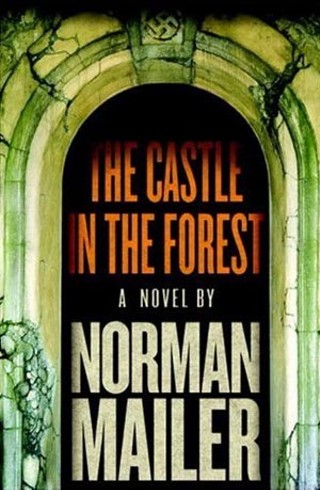Book Review: Readings
Norman Mailer
Reviewed by Josh Rosenblatt, Fri., Feb. 16, 2007

The Castle in the Forest
by Norman Mailer
Random House, 496 pp., $27.95
Even 60 years after his suicide in a bunker beneath the streets of Berlin, Adolf Hitler remains one of the favorite subjects of behaviorists, sociologists, and amateur moral philosophers: a black canvas onto which theorists can paint their own versions of the limits (or limitlessness, as the case may be) of human immorality. Just ask the History Channel, which must dedicate 18 hours of every broadcast day to the former Nazi dictator: The mystery of Hitler is one of those endless hallways, rich in dark corners and controversy and open to even the wildest conjecture.
Sixty years after the publication of his first novel and 10 years since his last, Norman Mailer – one of our foremost experts on dark corners and a man who never met a controversy he didn't like – takes a walk down this hallway with The Castle in the Forest, his fictionalized portrait of the dictator as a young man and the father, the mother, and the demons who, together, helped make him what he was. Half Freud, half Faust, and based loosely on real events in young Hitler's life, The Castle in the Forest is Mailer's imaginative contribution to the ongoing debate about the greatest of all controversies: What was behind Hitler's particular brand of hatred and demagoguery? Where does true evil come from? And who – or what – is to blame for it?
Answer: The devil.

Lucifer is understandably interested in snagging young Hitler's soul for his own, and he gives the job to one of his agents, a demon who is also the book's narrator. We learn that this demon has been with Hitler – his "client" – since conception and has been cultivating a sinister influence on his life ever since, so he's in a privileged position to give us the man's true story "with a confidence," he writes, "no conventional biographer could begin to feel."
It's a clever conceit, to claim complete biographical authority through mystical omniscience, and Mailer makes the most of it, conjuring a world where angels and devils battle for human souls with a mixture of guile and misdirection and granting readers access to the smallest psychic blips and minor incidents in his characters' lives. Of course, in a novel about the moral education of one of the greatest monsters in human history, there can be no minor incidents or small blips: Every circumstance, every insubstantial moment, is of the greatest importance to a demon trying to win a soul as full of potential as Hitler's, and every perceived slight, every felt injustice, every act of parental malfeasance, and every wicked thought become links in a lifelong chain stretching outward toward perdition.
Unfortunately, Mailer is more a journalist than he is a novelist, more a student of humanity than a creator of lives, and The Castle in the Forest, though rich in historical and psychological detail (the book's bibliography is an epic in itself), lacks the kind of character development and depth that inspires empathy in readers – the key to any successful novel. Hitler's father, Alois, is an incestuous drunk given over to wild acts of barbarity and rage, while his son is a willful, sinful brat who dreams at night of war and murder, of being "a high agent of the gods of death." Such depraved lives require a subtle touch; to make his readers care about them rather than recoil in horror, a writer must make them truly human and their flaws, no matter how great, close to our own. Mailer doesn't seem capable of such subtlety, however, and his characters too often read like ideas rather than men: In the end, they lack the depth and internal conflict at the heart of the world's great literary creations.
Mailer's interest here is in early childhood – and all the lingering pain and disenchantment that go along with it – and his story stops long before Hitler's really starts: Before his stint in prison, before the Beer Hall Putsch, before Mein Kampf and the burning of the Reichstag. Before Hitler becomes Hitler. To ensure that this transformation occurs, Mailer's demon, like any lingering childhood phantasm worth its salt, latches on to all of young Adolf's deepest insecurities and fears and spins them into a tapestry of victimized bitterness and megalomania: the perfect recipe for any future dictator.










